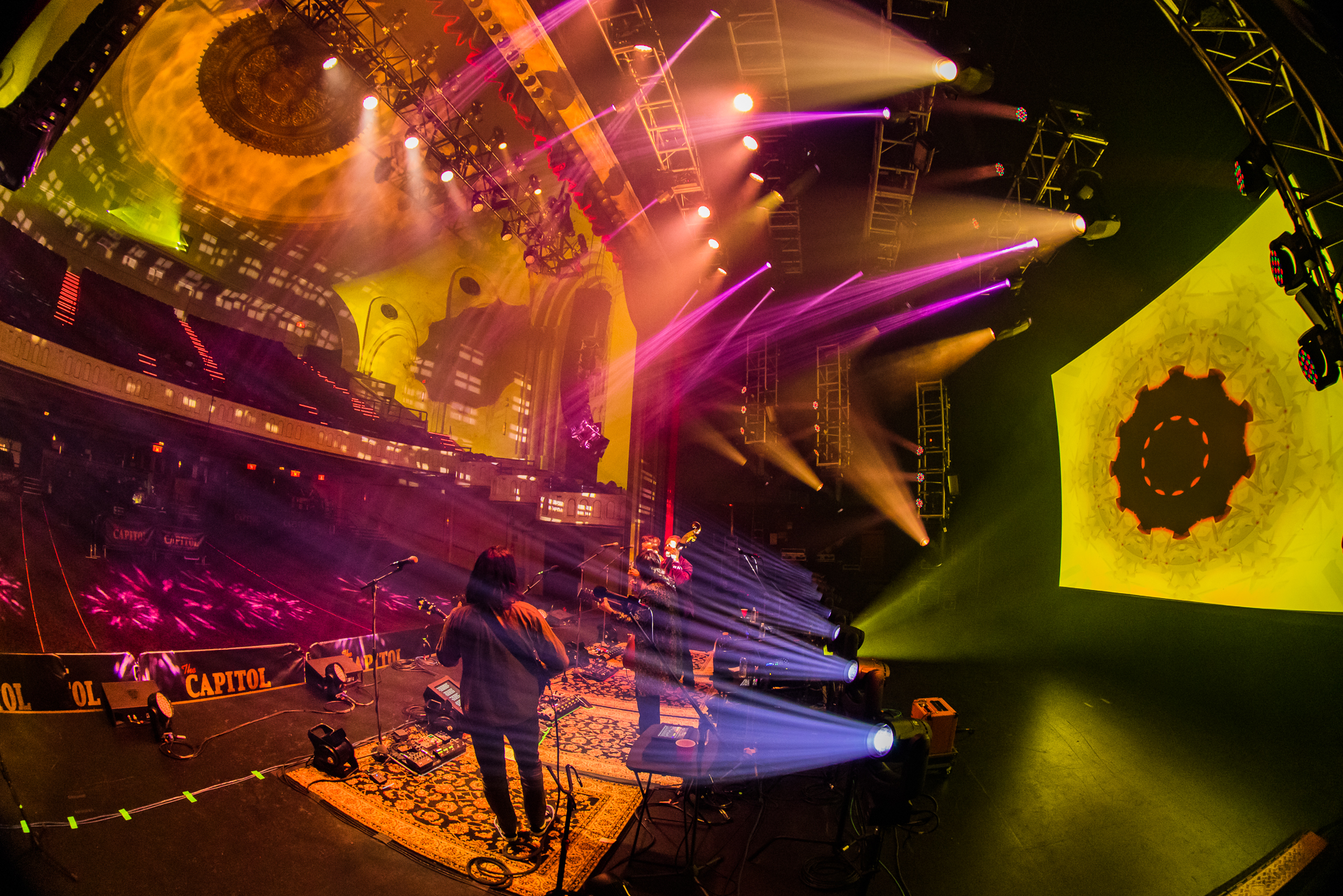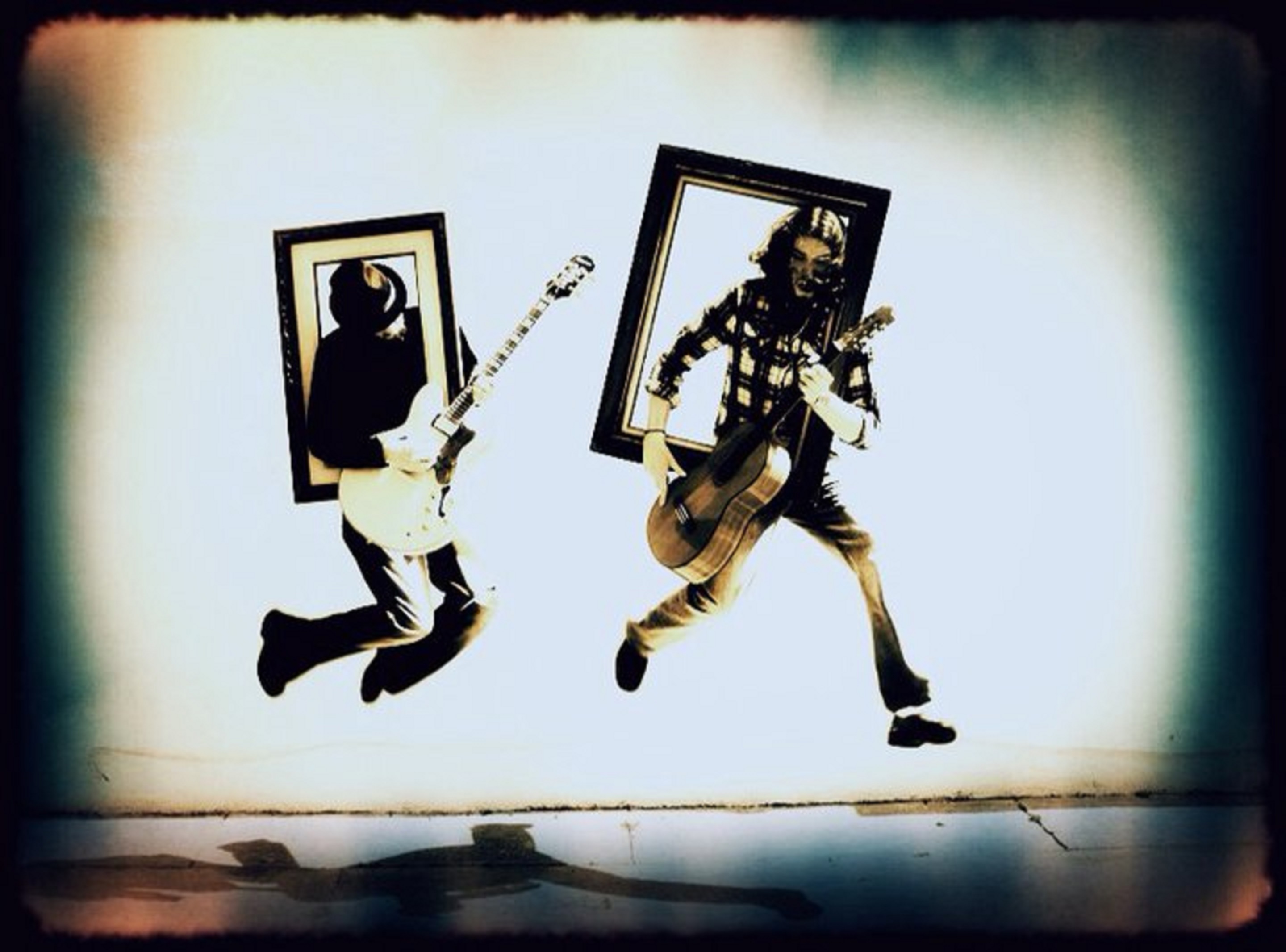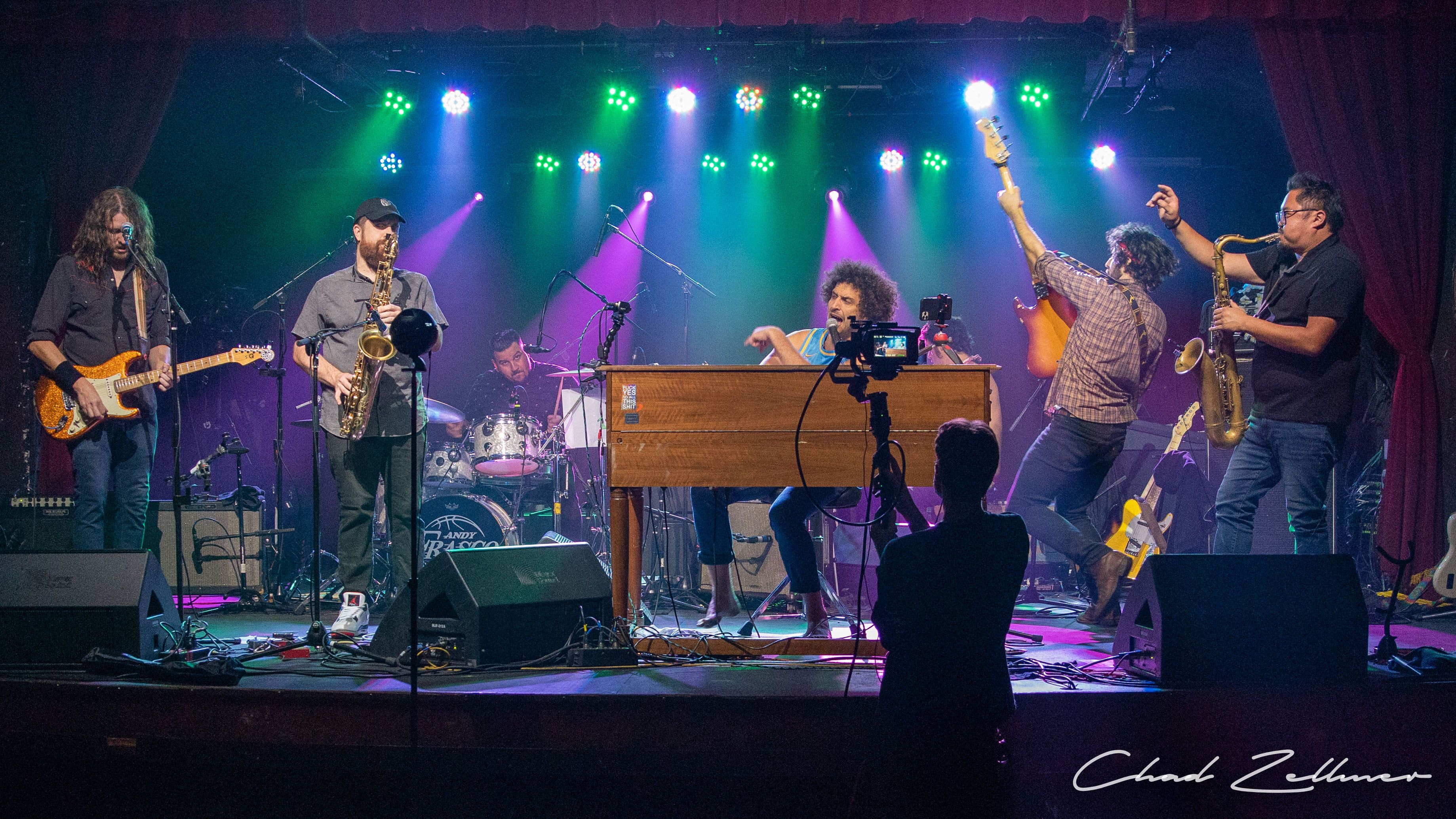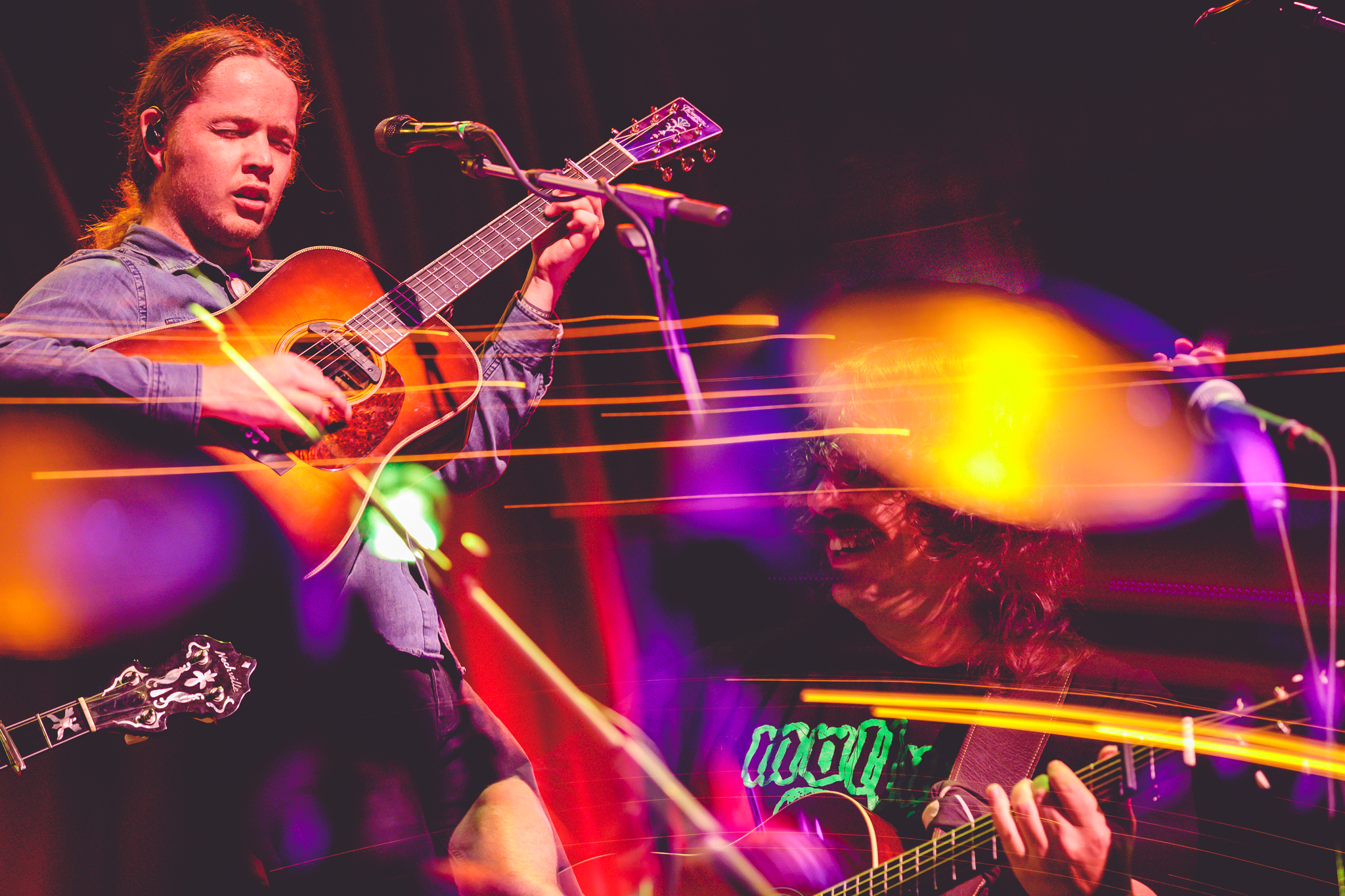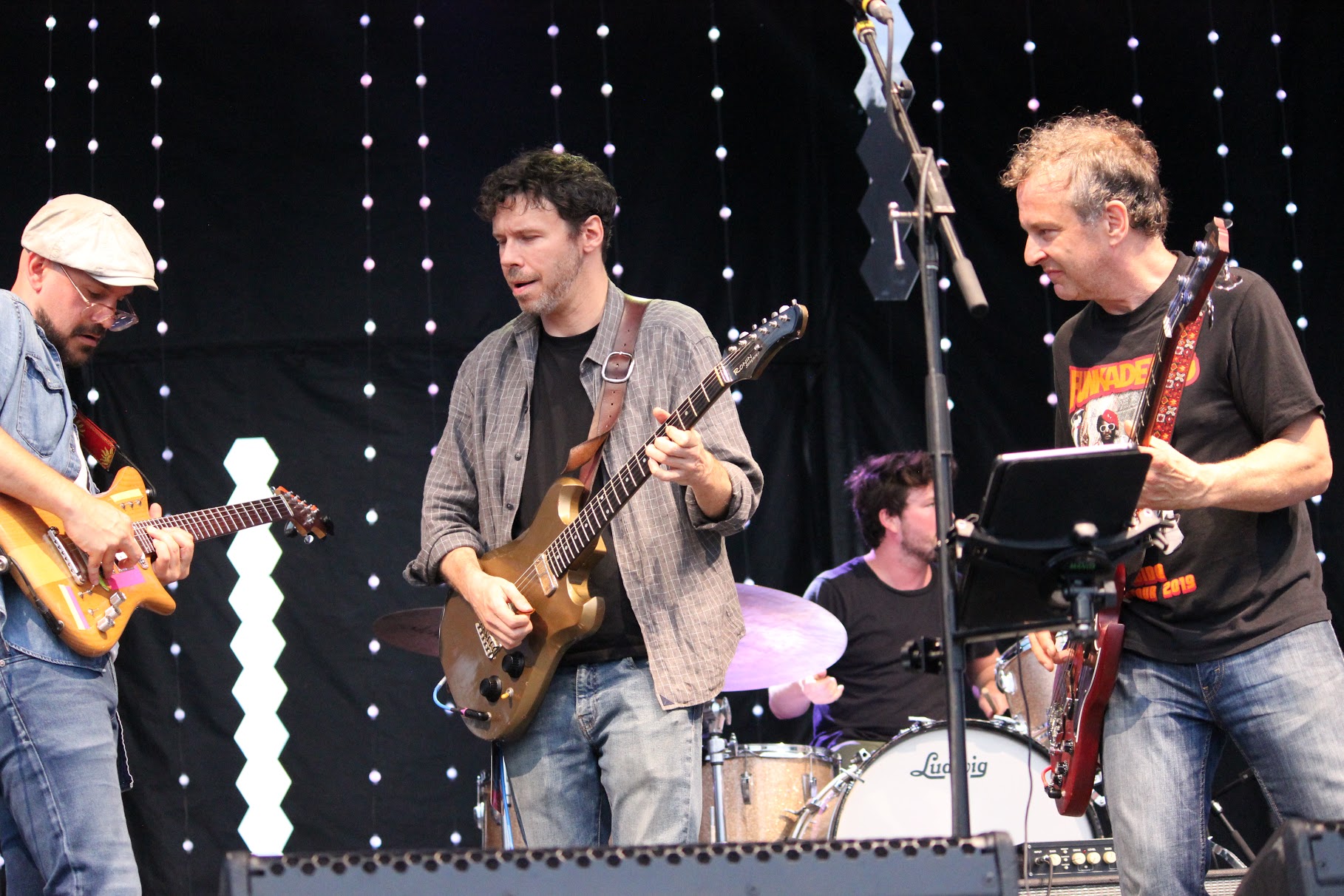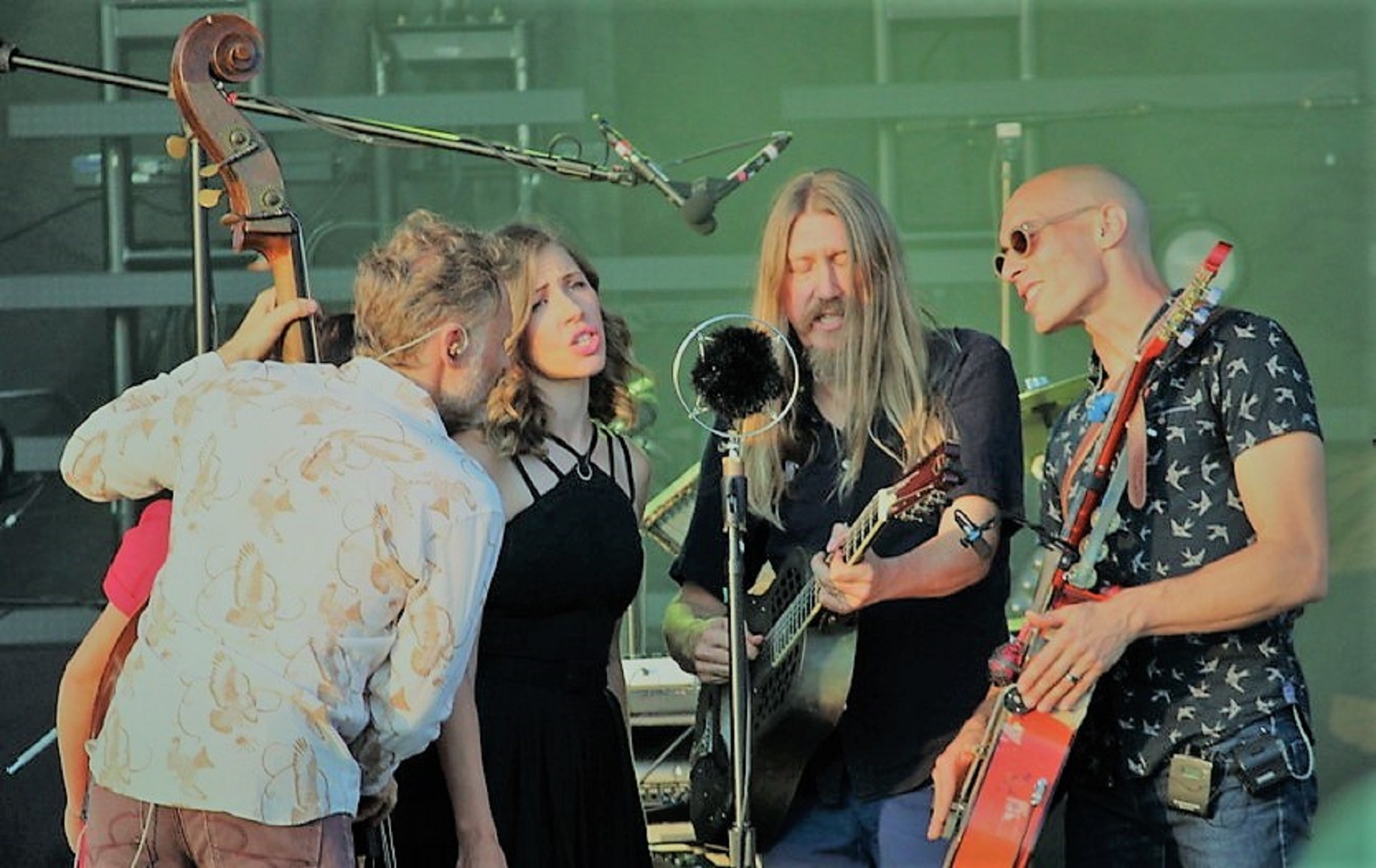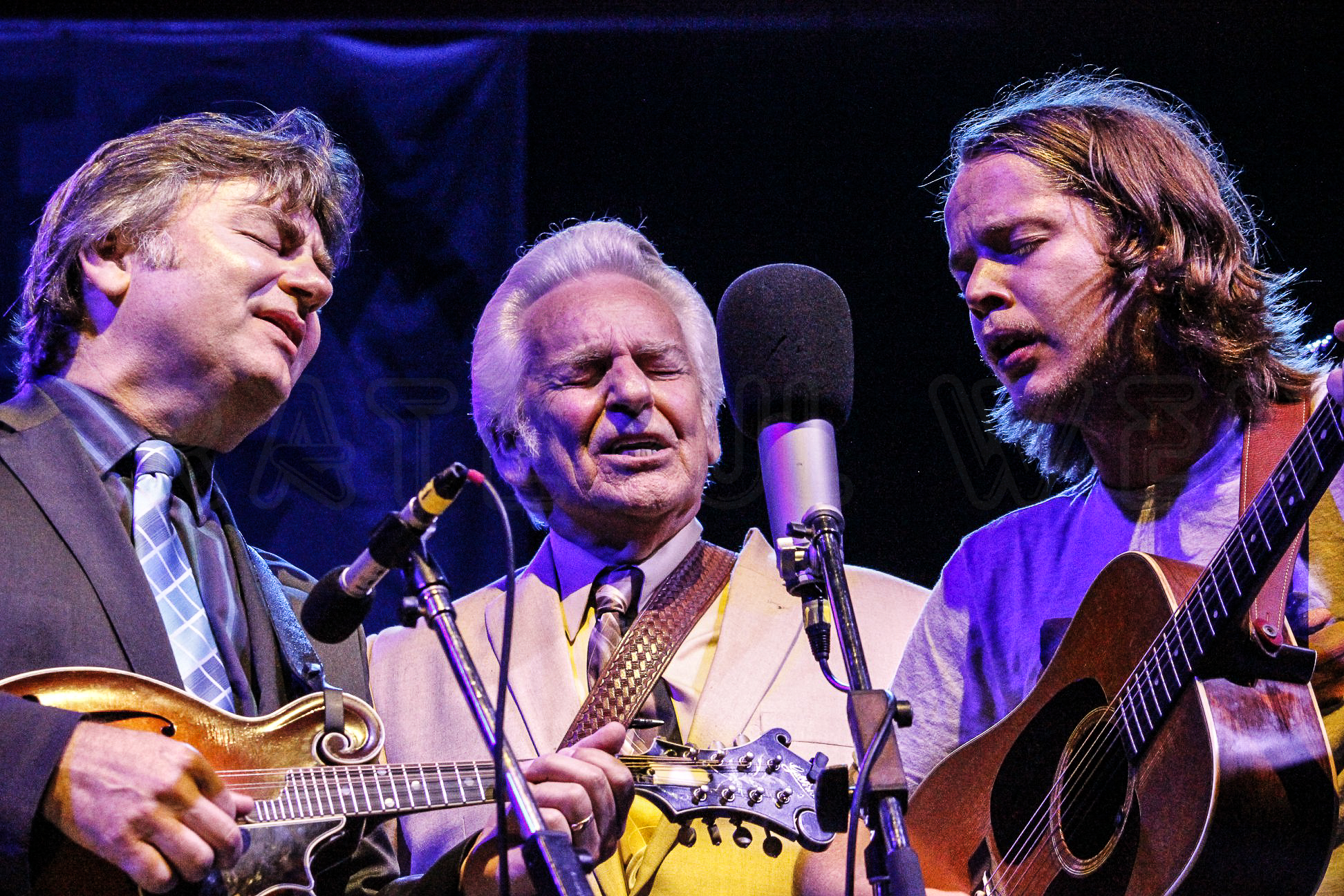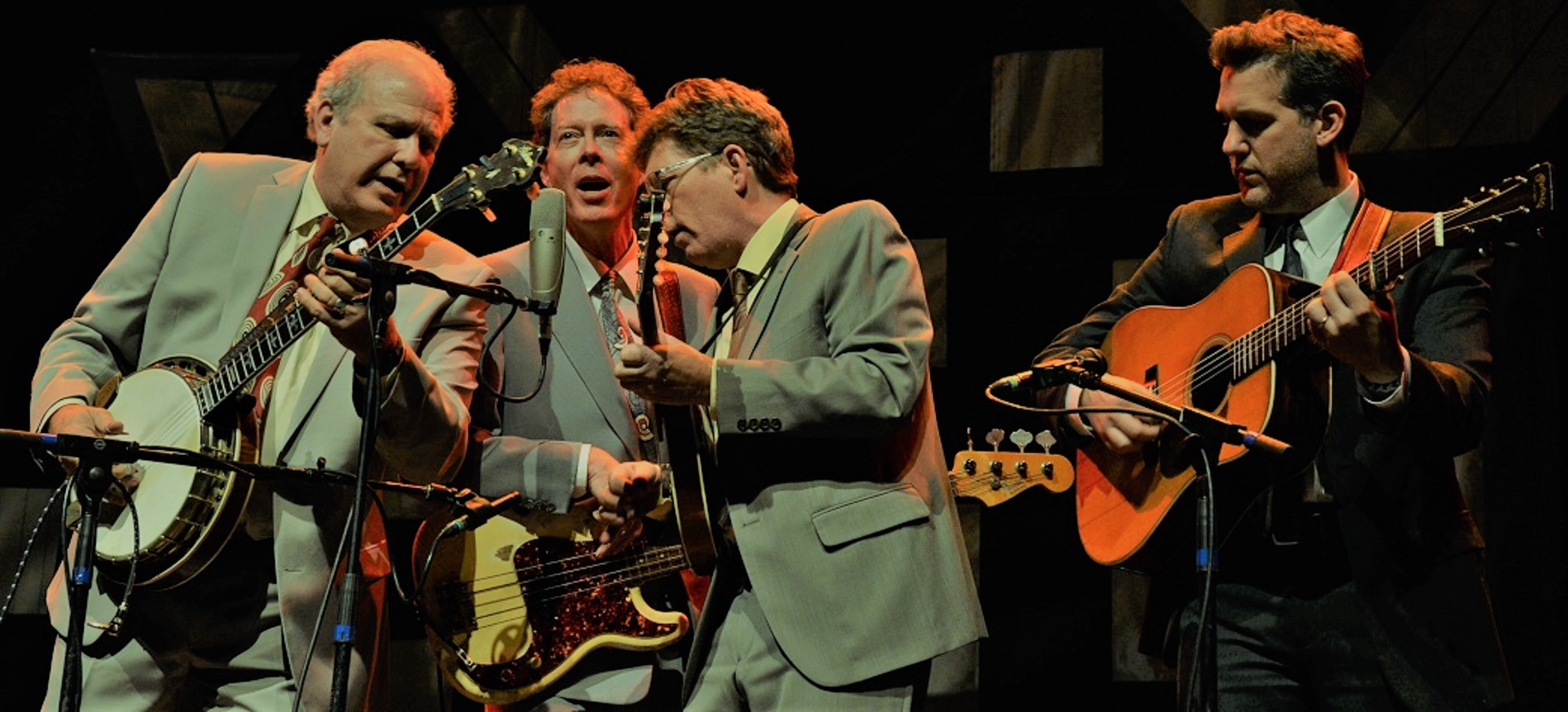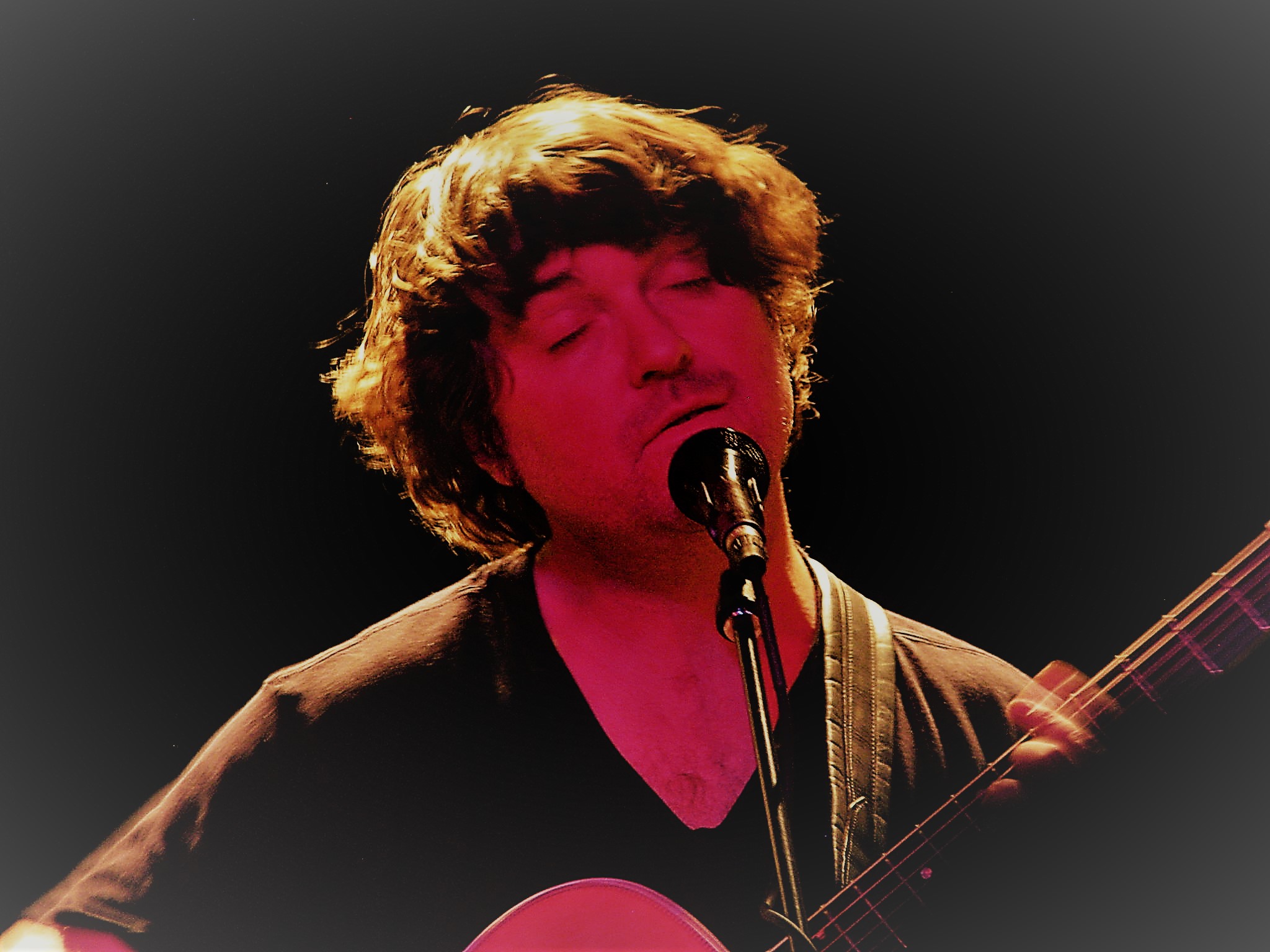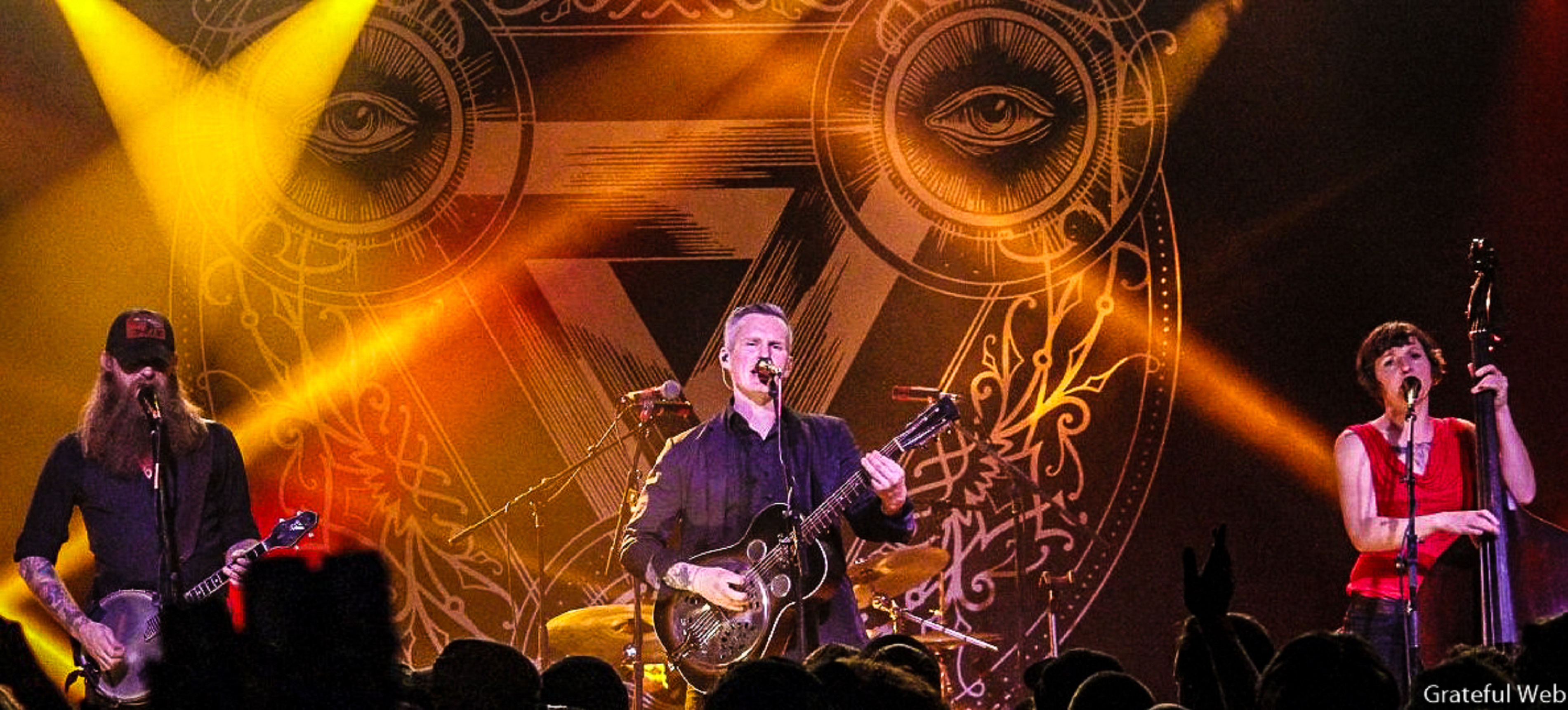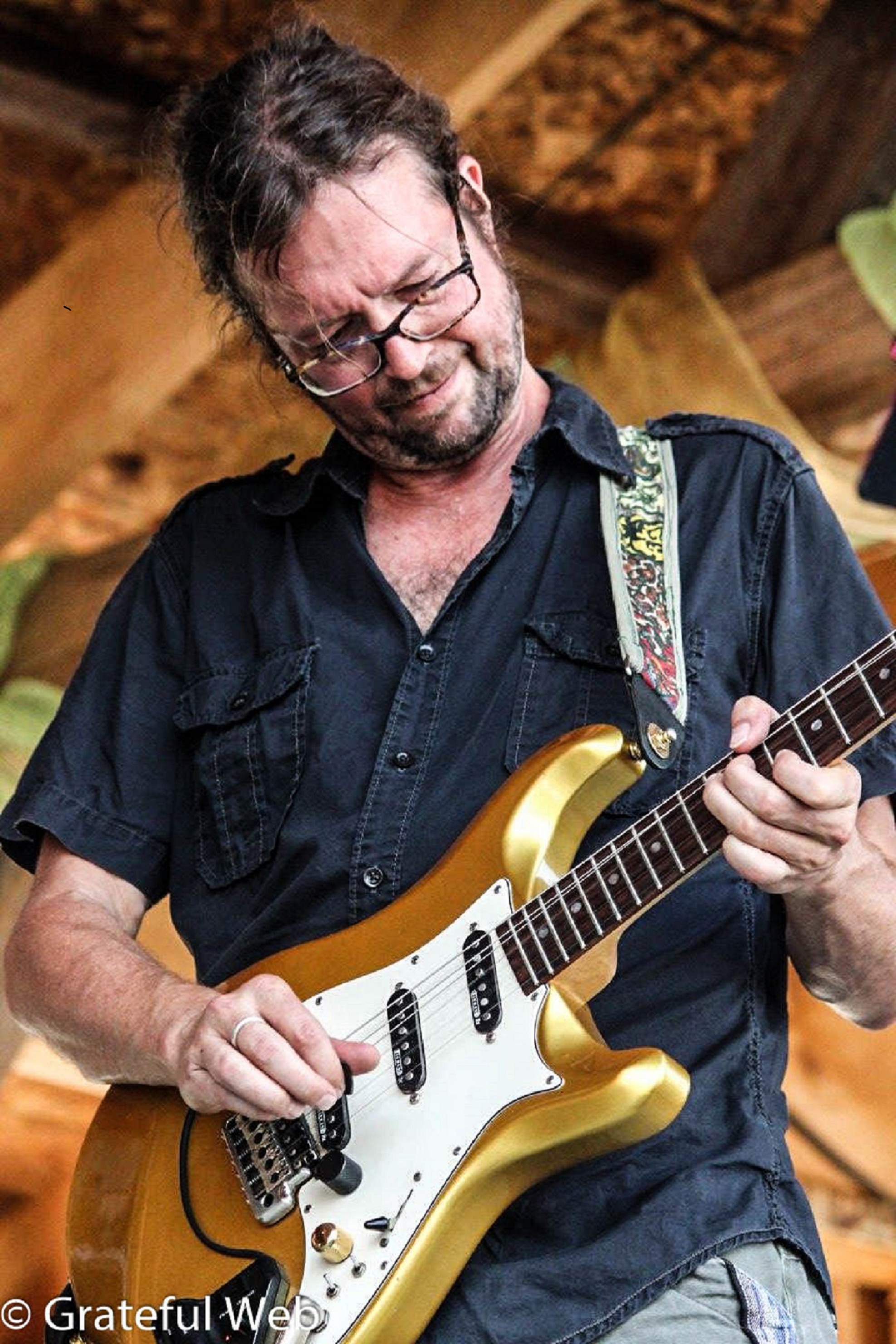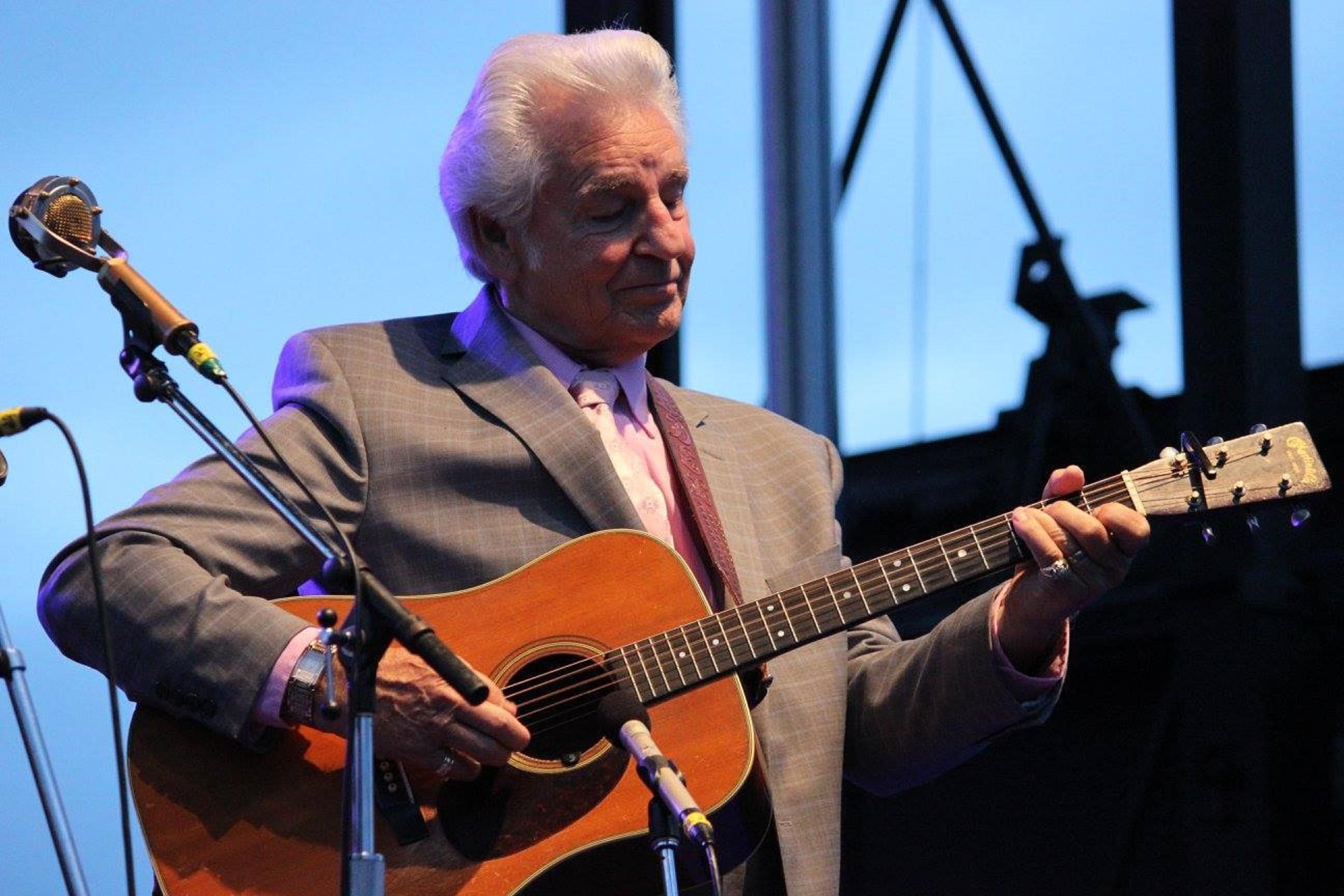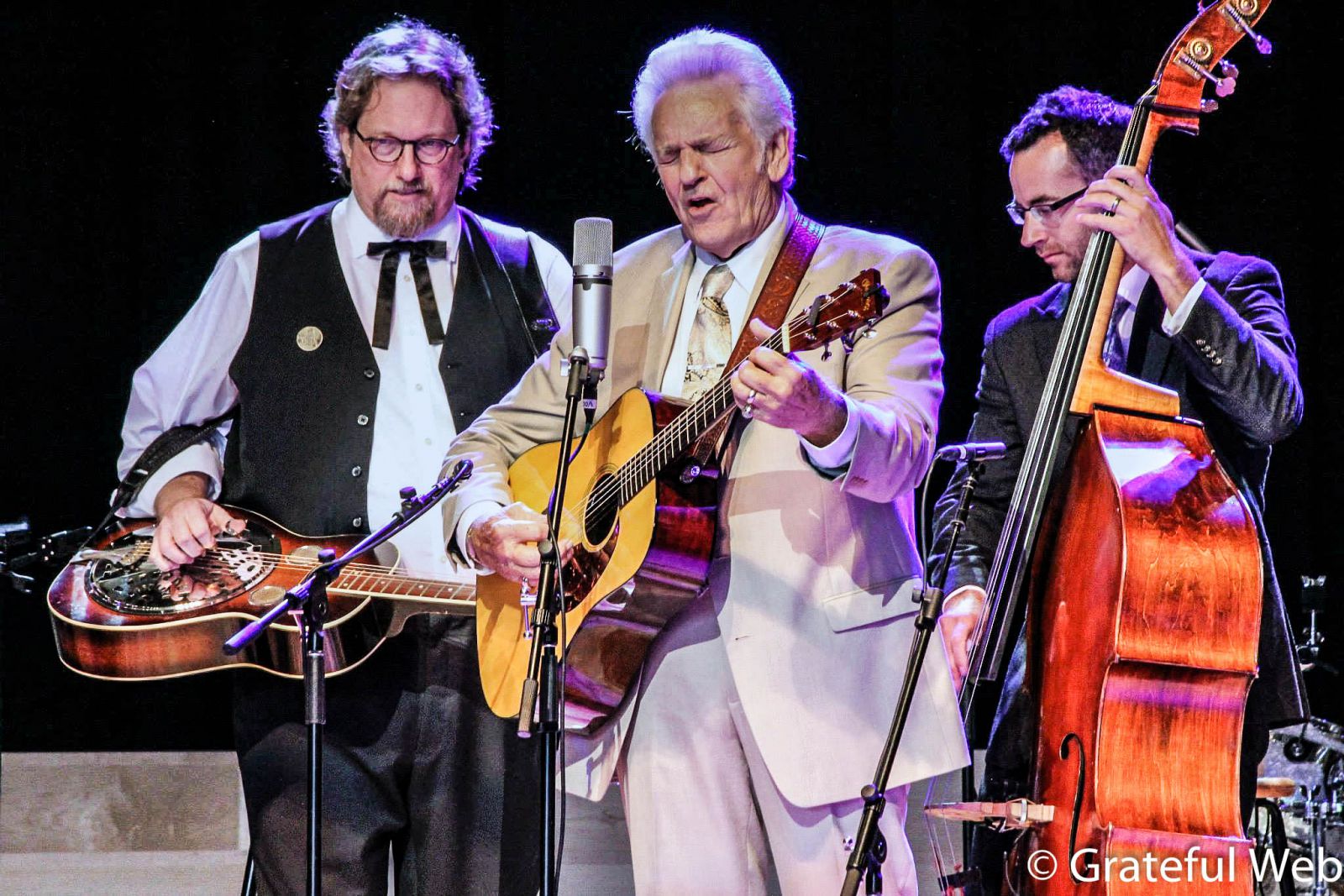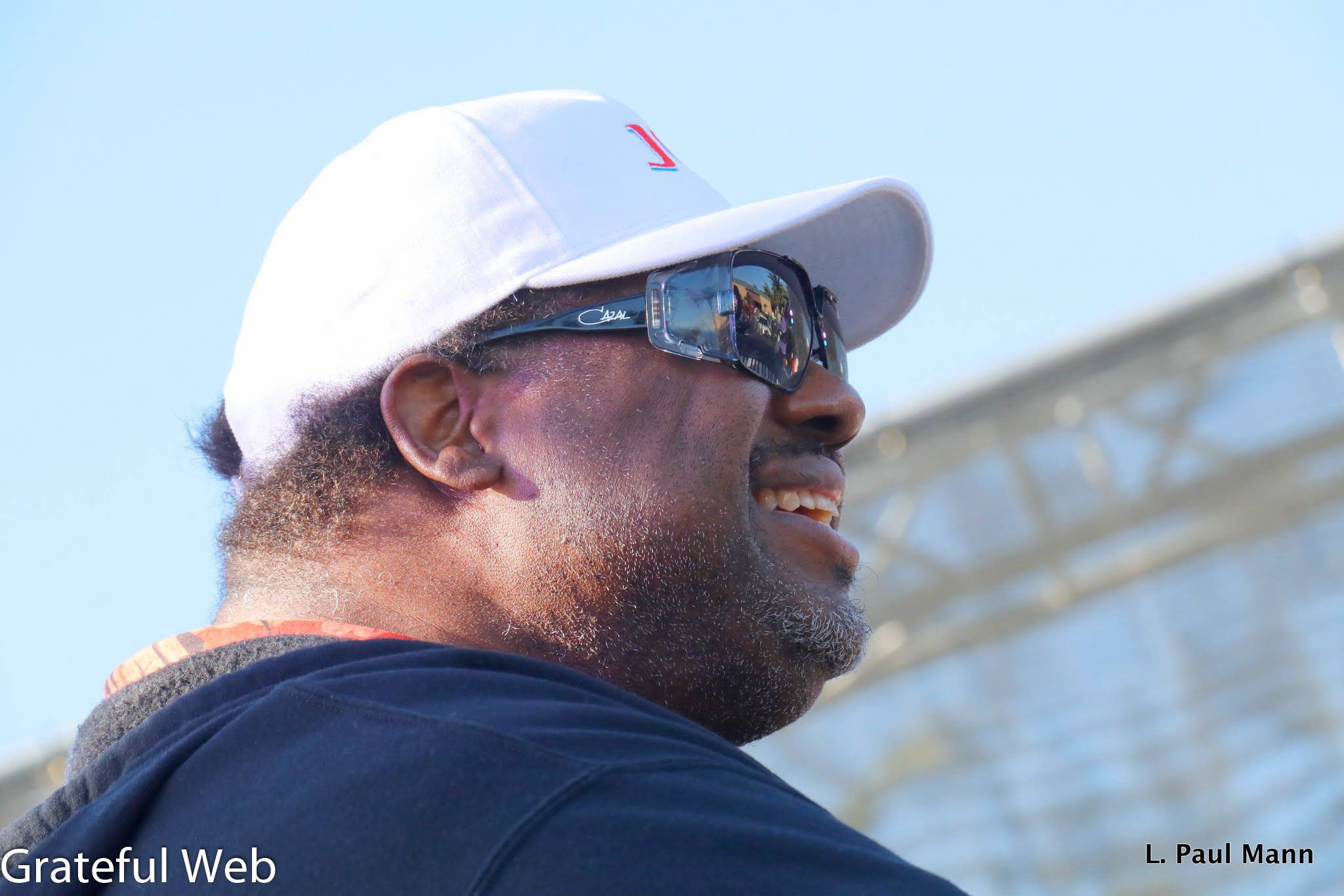When my sister was in high school she was a musical filter for me, as I was her younger brother and was very impressionable. Most of the music I was listening too was coming on mix tapes that artsy-fartsy, private school boys would make for her and she would subsequently hand down to me when that boy's time passed. So, as my friends were enamored with the New Kids, Tiffany and Color Me Badd. I was listening to Pink Floyd, Zeppelin & Neil Young. Occasionally, she would bless me with a studio release tape that she had replaced with some new-fangled record called a CD. One such bestowal was Paul Simon's Graceland. I played that tape until the plastic casing, with all of the words worn off, spewed its analog ribbon, rather than be played again. The South African influences on that album were coming from a place that I had never been, and yet the sounds comforted and invited me in. It remains one of the greatest albums from my lifetime and much of the credit goes to Ladysmith Black Mambazo.
Now, over 20 years after Paul Simon exposed them to a western audience, Ladysmith Black Mambazo continues to tour, riding his career changing coat tails. Recently, their nearly constant world tour brought them to The Flynn Center in Burlington, VT. The Flynn has been remodeled in the image of the turn of the century theaters that adorn the east coast and Midwest. A room with high ceilings envelops the stage, with straight lines in the architecture and in the soft, natural toned paints. Over embellished ornamentation is at the front of the theater on either side of the stages protruding forefront. And yet, it is a room that is much plainer than you would expect.
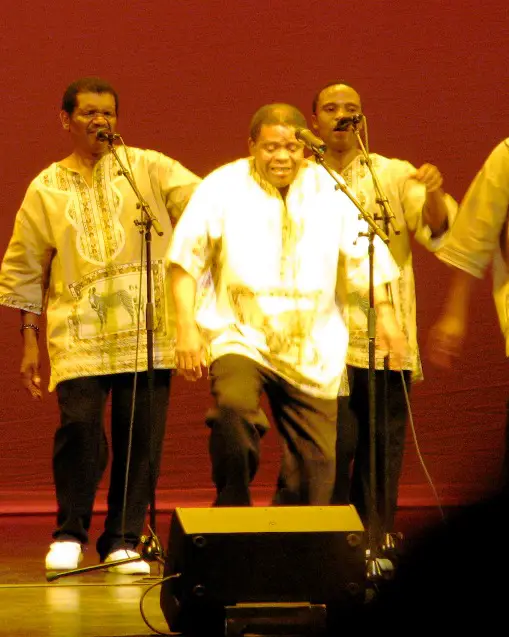
The night began as many cultural events start- a lot of dignitaries thanking us for coming, patting themselves on the back and thanking the next person to take the stage, because "he's one helluva guy." The anal volunteers sat the last of the late arriving crowd and, amidst a packed house, I was one of the many who was hoping these men with the smooth talking capabilities of every politician and used car salesman you have ever heard would shut up so we could be transported to a far off place.
Ladysmith Black Mambazo is made up of 8 singers. Seven men assume the role of backup singers while one takes the lead. Joseph Shabalala is the main front man for the band although; at times he has to leave the stage to catch his breath, leaving one of the other singers, three of which are his sons, to take the reins for a song or two. Shabalala is the group's senior member and its founder. In the early 1960's, Shabalala left his factory job, which he had left his family farm to pursue, and began winning contests with newly found a cappella mates. Quickly they rose through the ranks of South Africa's musical culture. As their fame grew, so did Shabalala's interest in Christianity, which lead the music to shift onto a gospel based musical path. Ladysmith began using music to spread good, desperately needed in the desolation of South Africa under the dark cloud of Apartheid.
There are no instruments in Ladysmith Black Mambazo, save the vocals of the octet. But their vocals suffice. They are guttural, harmonic, foreign, melodic, improvisational and meaningful, all at the same time. Their songs tell stories. I cannot speak the language of these minstrels but emotion is universal. Each song depicts different poignant feelings that come through in the intonation, the hand gestures, the tone, the tempo and the resolution. There are messages of hope throughout each song.
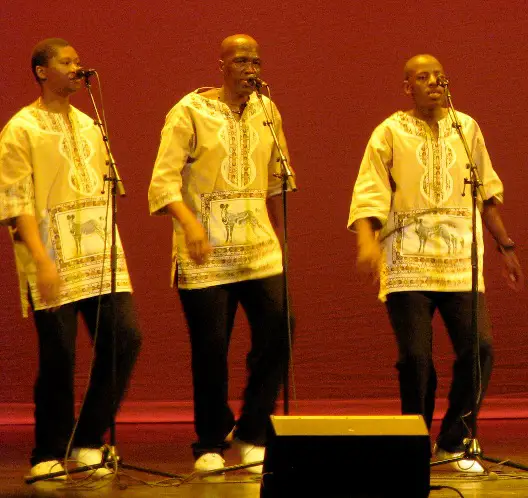
When the last local big wig had given himself enough credit for bringing the band here to Burlington, the lights went down and the eight men, who get their name from a combination of Shabalala's hometown, a reference to an oxen and the Zulu word for axe, danced onto their stage. Their shirts were bright and colorful. The pageantry of their entrance looked loose and happy, yet I am sure they have each of their smiles, reactions to the crowd and high steps choreographed. But it was in their flaws that the band grabbed me. The sequence of steps and harmonic singing was perfect in its imperfections. They start each song and dance together, but quickly they begin to intentionally stray from the script. One man may step forward and kick higher and out of sequence, the bottom of his stark white tennis shoe jettisoning out towards the crowd for an instant. Another will break from the melody and make his own sound, sometimes a low or high pitch animal call, sometimes a yawp sounding like a man inspired by the word of God. Whatever the case, it is in this gray area, diverting from the straight and narrow, that you can find the parallels between a cappella music that Ladysmith Black Mambazo creates and their improvisational counterparts in the world of jazz and jam rock. Improvisation happens sporadically throughout each song, but, unlike their counterparts in the realm of secular performance, the sections that are improvised within are not solely indicated by the end of the chorus. Like singers in a gospel choir, Ladysmith Black Mambazo breaks into improvisation when they are moved. And they are moved. And we were moved. Despite the context of the night, which at times felt like a subtly separatist event, once each song began, the zeitgeist was changed. It was the soundtrack of a dream, a dream full of natural wonders. In this dream there were no thoughts about black and white. There were no thoughts about technology and progress. There was only the struggle of man. And the music of Ladysmith Black Mambazo tells you that the struggle will end well.
When the second set began, Ladysmith Black Mambazo took the stage once again, this time in new, brighter shirts, an accomplishment hard to achieve based on the blinding colors in their first set wardrobe. The crowd had been loosened up throughout the first set with the jovial banter from each of the members that came between each song and the start of the second set followed suit. We were told by one of the groups younger members, who started the set on stage alone, about the windfall of pride that is currently blossoming in each of South Africa's natives as the start of the world cup, which will be hosted there in 2010, approaches. The audience was invited to participate in the set, through a call and response sing-a-long. With our voices ringing out of tune throughout the cavernous theater, we were quickly relieved of our duties when the rest of the band came back on stage. The second set lost some of its traditional quality; focusing more on the music of the younger members which sounded like R&B remixes of the music from the first set. The improvisational dance changed as well, with high leg kicks being replaced by the cabbage patch, the roger rabbit and the running man. The highlight of the show for may came near the end of the second set when the band performed their most widely recognized song 'Homeless', the melancholy lament that appeared on Graceland and was the only song they performed on that album without an appearance by Paul Simon, although he and Shabalala wrote it together.
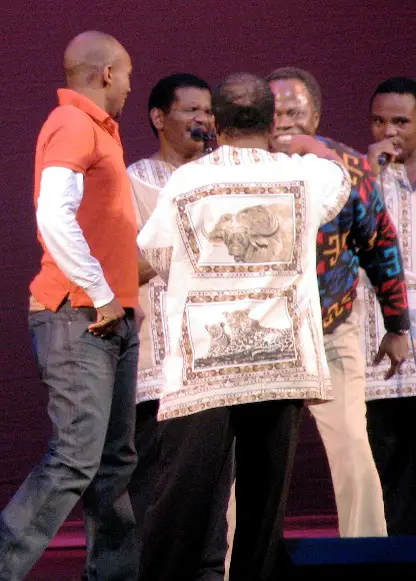
Now, I am not a fan of sing-alongs. I loathe people who start clapping at the beginning of each song. I am not paying to listen to my counterpart in row CC, a person with little musical talent and even less rhythm, struggle to keep four- four time. But, when in Rome do as the Romans do. Ladysmith Black Mambazo coaxed even me to clap along. And they went so far as to invite anyone who felt the spirit to join them on stage and dance along. Some people went up and did an admirable job mimicking the traditional steps. Others just went up to shake their booties- including a little old woman who couldn't have been a day under 75, yet proceeded to dance across the stage, facing the band and shaking her moneymaker in the direction of the crowd. She used her pink scarf as a prop, hooking it around her fellow audience members who had been brave enough to take the stage and even some of the band members. You go girl. You go indeed.
Now and then my sister and I talk on the phone, but it is far less than we used to. She no longer listens to good music, having given up on the challenging compositions of R.E.M.'s early stuff and joining the masses that like Celine Dion and country. But next time I talk to her, I will ask her if she remembers Graceland. I am sure that, just like I was on this cold night in January, she will be transported to a distant land. She will feel soothed by the harmonies. She will remember the stories in a tongue she doesn't understand, yet can easily make sense of. Like me, Ladysmith Black Mambazo will take her on a journey towards a happy ending.







